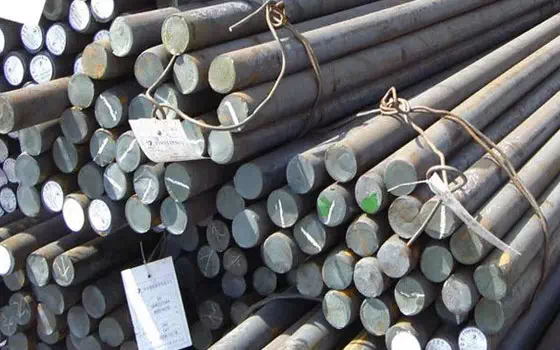Welcome to Zhishang Steel Co., Ltd.
TEL: (Gavin) +86-15665898999 | Email : info@zhishangsteel.com
Location:Home>>News>>Q&A » How does carbon content affect steel?

Carbon steel is an alloy composed of iron, carbon and a small number of other elements, the mixture of these elements has a significant effect on the properties of carbon steel. Depending on the carbon content, steel can be classified as mild, medium or high carbon steel. Mild steel refers to those steels with a carbon content of 0.30% or less. The carbon content of medium carbon steel is between 0.31% and 0.45%. Those with a carbon content of more than 0.45% are classified as high-carbon steel.
The content of carbon is a key factor in determining the properties of steel, including its strength, hardness and ductility. In addition, the carbon content also significantly affects the weldability and workability of steel.
Strength: The strength of steel will increase with the increase of carbon content. This is because the carbon atoms occupy the gap between the iron atoms, making the space between the atoms more crowded, which increases the strength of the material. In the welding process, we usually focus on the tensile strength and yield strength of the steel. Tensile strength is the ability of steel to resist breaking when subjected to tensile forces, while yield strength is the maximum stress that can be applied before the material begins to permanently deform.
Hardness: Hardness has a great similarity to strength, because hardness also increases with the increase of carbon content. However, hardness is not only about yield strength and tensile strength, it also includes the ability of steel to resist plastic deformation, indentation, penetration and scratching. When performing hard surface treatment, we usually focus on welding hardness and look for welds that are resistant to wear and impact.
Ductility: The ductility of steel decreases with the increase of carbon content. Ductility is the ability of a material to maintain plastic deformation under tensile stress before breaking. In the welding process, high ductility is very important because it prevents cracking.
Weldability: Weldability refers to the ability of a metal not to crack during welding. The content of carbon significantly affects the weldability of steel. As the carbon content increases, so does the likelihood of steel cracking. Therefore, for steels with different carbon content, we need to adopt different welding strategies.
Machinability: Since carbon affects the strength of steel, it also affects the machinability of steel. In general, the higher the carbon content, the more difficult the steel is to process. In addition to carbon, there are other elements that also affect the strength and machinability of steel, such as chromium and molybdenum, which increase strength and reduce machinability, while sulfur can soften steel and aid in machining.

Zhishang Steel has always been a pioneer in custom steel and special supplies, and has been recognized for its efforts in enhancing work efficiency and product quality. In addition to ISO9001:2015 certification, we also adhere to strict quality policies and proprietary procedures. If you have any questions, please contact us to provide the best type of product solution for your pre-painted, coil coating metal process, we will closely support after-sales service to ensure that your subsequent problems can be solved in a timely manner, if you have any questions, please send email to info@zhishangsteel.com, we look forward to serving you.

Zhishang Steel, specializing in domestic steel products trade, warehousing, processing and other services. The team has four service teams: Shandong Zhishang Steel Co., LTD., Shandong Zhiyiheng Trading Co., LTD., Tai 'an Zhishang Economic and Trade Co., LTD., Shandong Zhishang Steel Structure Co., LTD. Mainly engaged in steel coil, coated, stee···